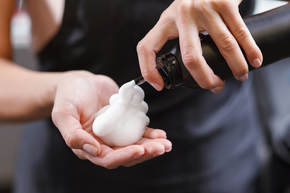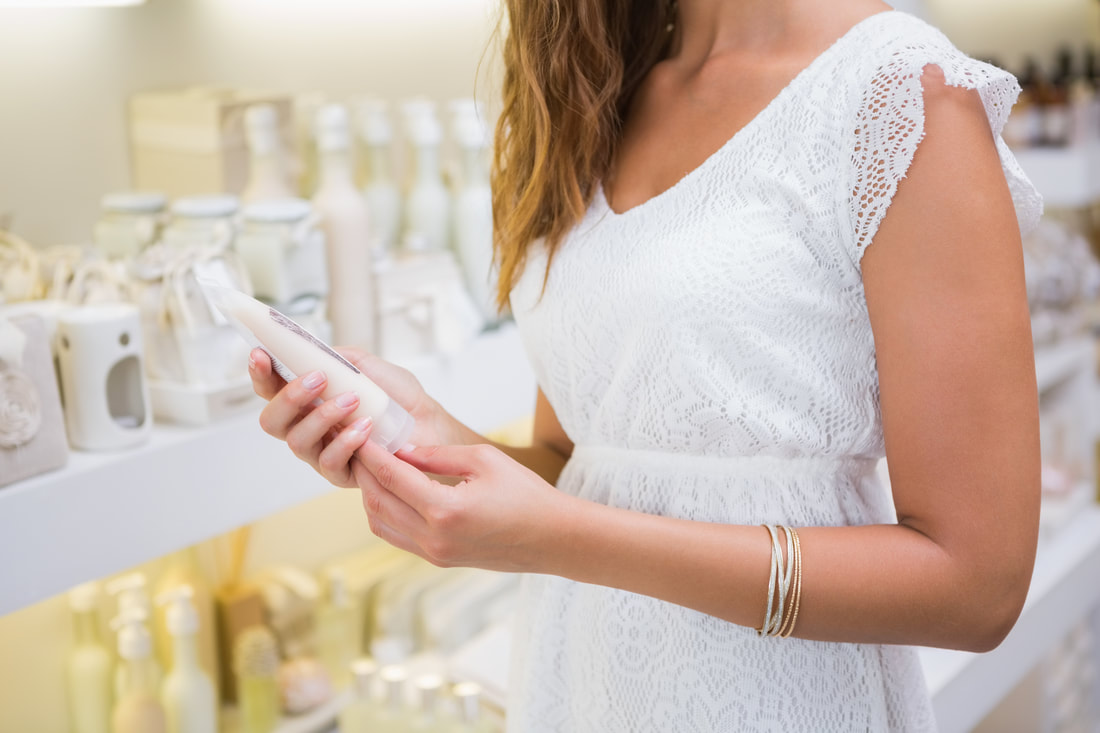Diversion: What It Is And Why You Should Know About It
|
According to Redken, nine out of ten consumers do not know what product diversion is. The definition of diversion is product being sold outside of its authorized chain of distribution;
potentially putting the quality of the product at risk. |
Redken also doesn't mince any words in its warning to consumers about diverted hair care products:
"Diverted products can be counterfeit, diluted formulas, or old, expired formulas that may not be safe to use. Contaminated or counterfeit products could cause irritation or even infection."
Even though Pureology lists a massive site like Amazon as an authorized seller, they take diversion so seriously they even state on their website:
“A former FBI agent developed the strategies and oversees the implementation of
Pureology's anti-diversion program.”
Pureology's anti-diversion program.”
So, why do you see Redken and Pureology in your local supermarkets, drugstores and online websites?
There are a number of different theories about how this happens. Some believe that authorized retailers, and sometimes even manufacturers themselves, are actually responsible for these “grey market” sales of damaged, diluted, and/or expired products to unauthorized retailers while simultaneously making public statements against diversion. Not an unreasonable theory considering Walmart requires all vendors to join the ICIX (which monitors the manufacturing supply chain) and Target won’t purchase from any vendor unable to provide product certification proving the rights to use product trademarks.

In fact, in the 2007 case of Matrix Essentials v Quality King, 522 F.Supp.2d 470 the manufacturer sued a distributor, asking the court to force the distributor to stop diverting a line of professional products. The manufacturer’s Director of Security, testified as to his commitment to ending the diversion market and his monitoring of distributors. The Vice President and General Manager testified as to the marketing of the company products to professionals and the importance of maintaining the product's placement in that market. The court found the testimonies to be completely at odds with the reality of the business and when the court found out that the manufacturer tracked its products and could have stopped shipments to the diverter, the judge said that the manufacturer “is content to enjoy the profits associated with diverted product, while paying ‘lip service’ to the notion that they are interested in protecting the professional nature of the brand.” The court later noted that the manufacturer made “unprecedented” profits from condoning diversion.
But not all manufacturers are culpable. In February of 2006 in the case of Australian Gold v. Hatfield No. 03-6218, an internet retailer was found guilty of tortious interference (intentional interference) with contracts. The distributor unknowingly sold products to an unauthorized retailer because the retailer knew that the distributors had contracts prohibiting sales to any business other than a salon, and set out to undermine that system. The court found that the retailer used fake names that made it sound as if they operated salons to buy products, and even said they had salons when they didn’t. The case was decided by a jury and the distributor was awarded $5 million for lost sales and punitive damages.
While there isn’t a law that explicitly prohibits diversion, diversion can violate contract provisions laws, importation laws, or a number of other decrees. Even the U.S. Supreme Court had a diversion case in 1998 that involved a lengthy analysis of the Copyright Act.
The bottom line is most industry members who fight against diversion agree that diversion is unethical, and responsible manufacturers continue to seek legal resources in their quest to stop diversion.
How to avoid diversion products:
- Check the product manufacturer website. Responsible manufacturers usually have a web page devoted specifically to explaining their diversion policy and providing names of authorized sellers. Here are some examples:
- Look out for bottles of salon products that have stickers all over them, especially a sticker with a different bar code strategically placed over the original bar code. Many times you can also tell a product has been diverted simply because the packaging is old, damaged, looks slightly different than the bottle in the salon, or is a discontinued product.
- Practice price comparison. While flashy marketing may encourage you to believe you are getting a better deal at the big box store, the average price for a bottle of diverted product can actually be as much as 10 percent higher than salon retail prices.
Why you should avoid diversion products:

- Consumers are aware that many businesses, hair salons included, offer their staff members incentives to promote product sales. This awareness can deter clients from purchasing suggested products due to the belief that their stylist is only trying to make more money at the client’s expense. But smart consumers know that an experienced professional will not compromise their integrity for the few extra dollars most commission programs offer. It is a stylist’s job is to understand you and your hair, then prescribe the products you need to achieve salon-looking hair at home. Stylists want to teach you when and how to use each product. If a product is recommended by a stylist but not purchased through the salon, and it doesn’t perform as explained or expected, a client may have trouble trusting that stylist’s future recommendations even when the recommendations are actually the best option.
- It’s hard to pinpoint accountability for the quality and effectiveness of diverted products. Most manufacturers have contracts with their distributors and salons and therefore, only guarantee the performance of their products when purchased through an authorized salon, spa, or related website. When you purchase products from a salon, you have a direct and accountable point of contact.
- Remember, nothing is more important than your health and safety. Since there is no guarantee of proper distribution in “grey markets,” there is no assurance that the product in the bottle matches the packaging. Aside from simply not working, diverted products can be diluted, mishandled, out of date, and even replaced entirely with another product.
*Note: The only way to guarantee you are purchasing salon quality product is to purchase the product in a salon. But no one can deny the convenience of Amazon Prime so, to help you avoid diversion when making online purchases, whenever possible, amazon product links throughout this section of our website will carry the Professional Beauty label.
*Amazon's Professional Beauty Label Disclaimer: Content is for reference purposes only and is not a substitute for advice from a licensed health-care professional. You should not rely solely on this content, and Amazon assumes no liability for inaccuracies. Always read labels and instructions before using a product.



